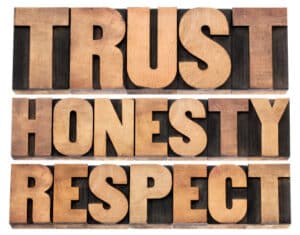Getting started with your business digital marketing program takes time, effort, and an understanding of where you foresee your business going.
When you have a strong idea of the types of goals you want to set and the success you want to achieve, you can begin to look for the types of tools and software that can help your efforts.
Managing and running your digital marketing strategy requires you to find the best pieces of technology and software that allow you to keep up with demand.
Trying to run a successful program with the wrong tools is nearly impossible, and will at the very least cause you unnecessary stress and complications.
MarTech is the term used to describe the types of software that are going to help you achieve your digital marketing goals.
Picking the right MarTech solution requires you to understand what it brings to your business and how it can add to your already existing tech stack.
In this article, we’ll go through the importance of MarTech, different MarTech examples that many businesses are utilizing, and how to create a tech stack that can take your business to the next level.
What is MarTech?
Marketing technology, otherwise known as MarTech, is used to describe the software, tools, and technology that is used by marketing teams in order to attract and manage leads, prospects, and customers.
MarTech tools are created to help marketing teams meet their goals by streamlining, organizing, and automating different marketing processes.
The variety of MarTech tools spans from customer databases to reporting and analytics tools.
There is a tool for every step of the marketing process to help digital marketers get the most out of their strategies.
By having tools in place to plan, implement, and measure marketing campaigns and efforts, MarTech assists in the growth of a business.
MarTech tools often have integration and connection capabilities to work together in a technology stack.
This helps businesses utilize all their tools at once without worrying about information slipping through the gaps.
How Can MarTech Be Useful for Your Business?
There are many different benefits to choosing MarTech solutions.
The biggest benefit is the time and effort that can be saved by automating marketing processes that have traditionally been time-consuming tasks.
Technology is designed to make life easier and more effective than old-school spreadsheets and printed documents.
By selecting the right arrangement of tools that work together and generate the best results, your company will see the investment in technology pay off quickly.
When technology works together, it functions smoothly and brings together different areas of your business.
Other benefits of MarTech include:
Better Results Tracking
MarTech tools have more accurate reporting tools and metrics tracking than methods of old. This allows marketers to really see the impact of their campaigns and strategies rather than guessing at ROI.
Deeper Data Insights
In addition to better tracking, MarTech tools provide deeper insights into data that is collected.
That helps businesses make better decisions based on real data and helps marketers improve their understanding of customer profiles, market share, and brand reach.
Faster Growth
Having the right MarTech tools in place allows your business to grow and expand rapidly without relying on old systems that can’t keep up.
Even if you switch to new platforms or tools, when you have MarTech in place your data transfers quicker and can be cleaned and sorted in an instant.
Improved Adaptability
Being able to adapt and change when issues arise is a big part of being a marketer. When you have a strong MarTech stack at your disposal, changing campaign direction or marketing goals is much easier.
Stronger Connections with Customers
MarTech is capable of gathering, processing, and providing insights into data that is unmatched by older marketing methods.
This allows you and your brand to personalize your messaging, segment your audiences, and stay on top of customer interactions much more efficiently.
What are The Most Popular Types of MarTech?
There are many different types of MarTech tools that can be used to create a strong technology stack or a group of technology tools that work together and form the foundation of your digital marketing program.
By having tools that work together in unison, you can avoid the difficulties that come with competing platforms.
1. Customer Relationship Management (CRM)
One of the biggest pieces of MarTech is your customer relationship management software, otherwise called a CRM.
This is the backbone of a digital marketing program and should be the primary tool used in your technology stack. Popular examples include HubSpot, Salesforce, Microsoft Dynamics.
This tool holds all essential customer data and allows you to quickly find, organize, manage, and preserve your customer information across different platforms and campaigns.
The CRM is the source of your marketing efforts and allows you to find new customers and manage the ones you already have.
2. Social Media Management Software
With the wide variety of social media platforms that your brand should have a presence on, it can be difficult to manage across channels without the right tool.
Social media management software is the key to maintaining a strong presence across social channels without missing anything.
MarTech social media management software helps you gather all your social data in a single location.
Data from Facebook, LinkedIn, Twitter, TikTok, Instagram, and any other platforms you have a profile on can be compiled into a single location that allows you to manage followers, posts, shares, and brand awareness.
3. Data Analysis Tools
Data analysis is key to ensuring that your marketing strategies are working.
Without proper data analysis, you won’t fully get a grasp on the impacts your campaigns have or areas that need improvement.
Real-time data analysis is essential to help you pivot your campaigns in the moment so money and time are not wasted.
Data analysis also helps you understand more about:
- Customer demographics
- Customer behavior
- Website traffic
- SEO
- Content and keyword rankings
- Brand reach
4. Marketing Automation Software
MarTech automation tools help you manage different functions of your marketing efforts and daily tasks.
Rather than have your team spend their time on repetitive or time-consuming tasks, technology can help you maintain and streamline different areas such as:
- Website maintenance
- Communication
- Workflows
- Databases
- Data sync
- Social post scheduling
- Email outreach
5. Marketing Resource Management (MRM)
Another type of MarTech tool is a marketing resource management software, otherwise known as MRM.
This helps you manage the resources, finances, and personnel associated with marketing campaigns.
It also allows you to directly attribute marketing spending to specific activities.
MRM helps you measure ROI and understand the financial impact that marketing campaigns have on your overall bottom line.
You can also use MRM to help you better understand resource allocation and build more effective budgets.
MRM can be a helpful software for providing proof behind marketing decisions and reporting to higher-ups on marketing spend.
6. Content Marketing Management Software
A content management software tool can help you in the creation, distribution, and tracking of content efforts.
Because content is another example of marketing on multiple channels like social media, having a single location to monitor and manage your efforts helps you to avoid confusion and streamline efforts.
With a content marketing software, you can:
- Plan your content by finding key topics and keywords.
- Distribute it across platforms like your blog, email database, and social platforms.
- Monitor traffic, results, and SEO on each content piece.
7. Event Marketing Management Software
If your business deals in events, whether they are in-person or virtual, having a management software is a huge part of ensuring that your events run smoothly.
Event marketing tools help you:
- Capture leads.
- Send out communication to attendees.
- Organize break-outs and conference rooms.
- Provide personalized agendas.
- Manage speakers.
- Plan out booths and layouts.
- Track costs.
8. Advertising Tools
Your digital advertising efforts are another example of an area of your digital marketing program that needs to be closely monitored and tracked.
When you have ads out on multiple platforms, it can be difficult to track, manage, and optimize each campaign.
An advertising management tool allows you to track the efforts of your advertising in real-time, allowing you to adapt your campaigns in the moment.
You can also track your costs, ROI, and conversions to see if your marketing efforts are meeting your goals.
Advertising platforms also ensure that you don’t lose track of your ad spending or go over budget by accident.
How to Build a MarTech Stack
A MarTech stack is the different combination of tools and software that you’ve selected for your business needs.
Knowing which tools to invest in first, which can accomplish multiple goals, and how to prioritize your stack growth can be difficult.
Here are a few steps to take as you build up your MarTech stack:
1. Set Your Goals
Before you begin looking at your different options for tools, it’s important that you’ve established the goals you want to accomplish.
Identifying your marketing strategy is what will guide the choices you make when picking between platform options and tools.
Clearly document the goals you want to accomplish so you know which types of tools will provide the best results.
2. Check in with Your Team
One of the best resources to tap in order to find out which tools will provide the best benefits is your own team.
No one knows better than the people on the ground which tasks can be automated, what can be taken off of workloads, and what makes their jobs the most difficult.
Asking for the team’s opinions will help you determine the best possible tools.
3. Establish Your Budget
There’s no way around it: MarTech tools cost money.
Even if a tool offers a free version, as your business grows and develops, you will likely need to move to a package with monthly or yearly costs.
Setting your budget allows you to determine which tools you have room for and what tools you might have to wait for.
4. Research, Research, Research
Once you’ve set your goals and set your budget, you are ready to start looking for the right MarTech tools.
For each of the main categories of MarTech, there are a plethora of different platform options available.
Talk to salespeople and take advantage of product demos to fully understand the capabilities that each platform offers.
5. Compile Your Data
Once you’ve selected the tools that you want to use in your MarTech stack, you need to make sure the data you are transferring over is complete, clean, and organized.
You don’t want to keep going back and forth between new and old systems because you weren’t prepared for your data transfer.
By taking the time up front to compile and go through your data, you can avoid many headaches and stressful situations in the future.
6. Measure Your Success
Once you’ve implemented your new MarTech tools, you need to keep your eye on their success.
Monitor how they help you and whether or not you’ve met the goals you set at the beginning of the process.
If you aren’t reaching the success you want, don’t be afraid to switch to a better platform.
Going to another new tool is better than continuing to pay and work with a tool that isn’t going to be able to deliver the results you need.
Wrap Up
Picking the right MarTech software tools is essential to ensuring that your business is able to meet your digital marketing goals.
Without the best MarTech tools in your belt, you can risk losing out on the opportunity to reach the level of success you are aiming for in your digital program.
Your tech stack is the foundation on which your marketing strategies are built.
Having the right combination of software and tools in your stack is necessary in order to grow successfully and manage your marketing campaigns across platforms and in different channels.
If you are wondering if your MarTech stack is hitting all the areas it needs, then check out our MarTech Stack Evaluation!
After just a few short questions, you’ll be able to have a clear assessment of the maturity of your tech stack and see which areas need to be prioritized as your business continues to develop and grow.
![What is MarTech? [+ Examples to Add to Your Tech Stack]](https://rockcontent.com/wp-content/uploads/2021/12/martech-1-1024x538.png)










